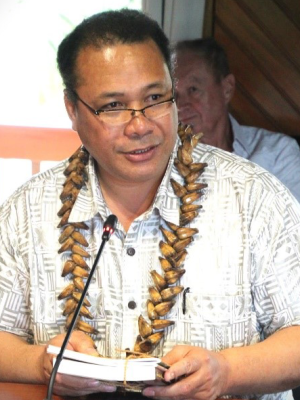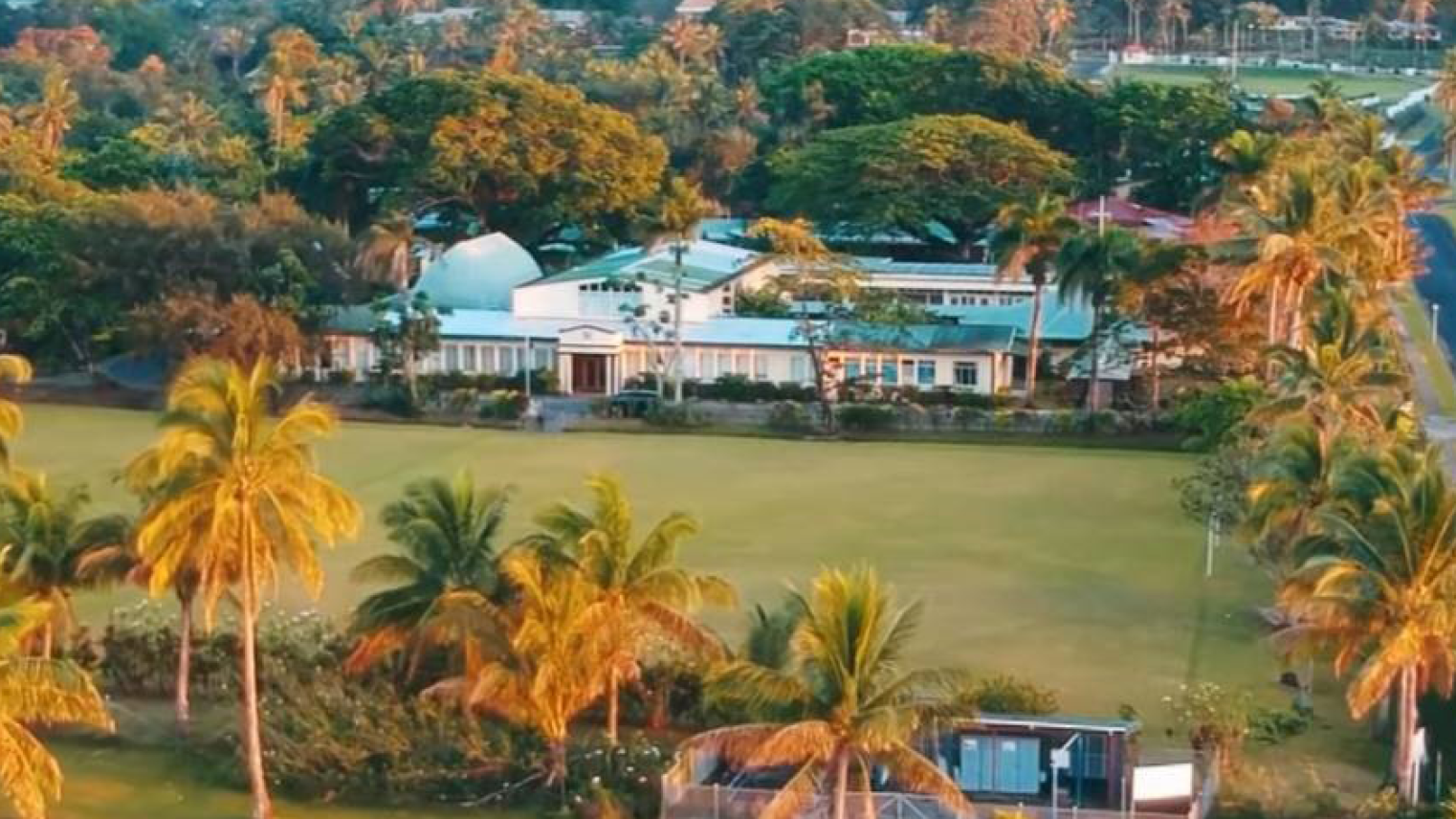The 2023 ANU Pacific Institute Annual Lecture - The 'whole of life' way is presented by Reverend Professor Upolu Lumā Vaai, Professor and Principal of the Pacific Theological College in Fiji.
About the lecture
The 'whole of life' way: Pasifika relational philosophies for a (k)new development story
Everything flowing is dying in the trap of coloniality. The Vanua/Whenua/Fanua, whose life is shaped by complexity and never-ending flow of relationships, is constantly inundated with development paradigms forged in the policy halls that worship ideologies of simplicity and order. And as we teach the Fanua what sustainability is as outlined in our policies, we slowly relegate their ‘whole of life’ way to the background by denying complexity and wisdom, the very tools that forge ground-up and holistic sustainable life. Whatever coloniality is, its greatest achievement is to make us think that the other dimensions that make up the ‘whole of life’ such as spirituality, intangibility, chaos, uncertainty, and complexity, are immeasurable and defective therefore must be annihilated. We are constantly swimming in the currents of the pathological narrative of ‘Onefication’ that utters life by annihilating life.
This faasoa (sharing) has three aims. First, it examines how and why our development narrative has always been obsessed with the pull of the so-called the ‘Onefication Way’ at the heart of the single-story epidemic. Second, it explores the ‘Whole of Life Way’ as a relational philosophy to challenge and deepen the Pacific Way, as a (k)new consciousness, tested and lived by Pasifika communities for centuries, assisted with their resilience processes, shaped their ecological spiritualities and wellbeing, and underpinned their ‘whole of life’ knowledge. Third, it suggests the needed shifts of mindsets and ways of knowing and being if the relational ‘Whole of Life’ Way is to inform transformative policies and development strategies. The key question is: What is there in our communities’ ‘Whole of Life’ Way that could assist in creating a resilient Pasifika region?
Note
Audience members will have the opportunity for a Q&A session with Reverend Professor Upolu Lumā Vaai, followed by light refreshments.
About the speaker
Upolu Lumā Vaai grew up both in the coastal and inland villages in the island of Savaii, Samoa, closer to the land and ocean which immensely shaped his theology, philosophy, and educational vision. He is Principal and Professor of Theology & Ethics at the Pacific Theological College. He is a practiced indigenous philosopher and decolonial educator and theologian. A regional leading voice in reclaiming and promoting Pasifika philosophies and theologies to underpin a (k)new development story, he is regularly invited by many international forums to speak on Pasifika relationality, relational philosophy, relational hermeneutics, relational theology, and relational ways of knowing and being, which are ideas scattered throughout his many publications and research projects.
He is a committee & board member and advisor to many regional and international organizations including the World Council of Churches, UN Office on Drugs and Crimes, Asia Development Bank, World Bank, G20 Interfaith Forum, International Academic for Multicultural Cooperation, Pacific Conference of Churches, and former board director for the Samoan government. His recent books on relationality are ‘reStorying the Pasifika Household’ (2023, with Aisake Casimira), Relational Hermeneutics: Decolonizing the Mindset and the Pacific Itulagi (2017, with Aisake Casimira), and The Relational Self: Decolonizing Personhood in the Pacific (2017, with Unaisi Nabobo-Baba). He currently leads the establishment of a new regional Pasifika Communities University (PCU) of the Pacific churches premised on the ‘whole of life’ philosophies and spiritualities and communities-based learning approaches of Pasifika communities.
Event Speakers

